65mm Seals for PET Jars: Pressure Sensitive & Induction Foil (100 pcs)
$12.10 incl. GST
Seal Diameter: 65mm.
Important Notes for pressure sensitive seals:
– The bottle opening must be kept clean and flat, with no gaps or unevenness.
– The lid should be tightly screwed on, leaving no gaps.
– After sealing, please place it in an environment below 21°C to avoid high temperatures or direct sunlight.
For a wider selection of products, please visit our sister site: vivoplastics.com.au
Did you like this product? Add to favorites now and follow the product.

(03) 8795 7742 info@vivopak.com.au
2 reviews for 65mm Seals for PET Jars: Pressure Sensitive & Induction Foil (100 pcs)
Description
Induction foil sealing is a non-contact method of heating a metallic disk to hermetically seal the top of plastic and glass containers.
This process is particularly popular in a number of industries, including cosmetics, as it ensures the integrity of the product from the production line until it reaches the end user.
How Induction Foil Sealing Works:
- An induction sealing system features a power supply, a sealing head (or sealing coil), and usually a conveyor system to carry product under the sealing head.
- The induction cap sealer is a device that emits an electromagnetic field. When a container fitted with an induction seal passes under this field, the field causes the foil layer within the seal to heat up.
- This heat then melts the polymer coating on the underside of the foil, which adheres to the neck of the container and forms an air and watertight bond.
- This process takes only fractions of a second and is usually done after the container has been filled and capped in a production line.
Pressure sensitive seals are a type of liner often used in the packaging industry to seal a wide range of products, including food, cosmetics, pharmaceuticals, and chemicals. Unlike induction seals, which require a heating process to activate the seal, pressure sensitive seals adhere to the container simply by applying pressure.
Details about Pressure Sensitive Seals:
- Structure: A pressure sensitive seal typically has multiple layers, including a pressure-sensitive adhesive layer, a foam or wax-backed layer, and a printed or unprinted liner.
- Application: Once the container is filled, the pressure-sensitive seal is inserted inside the cap. When the cap is screwed onto the container, pressure is applied to the seal. The adhesive becomes activated and adheres to the container’s rim, creating a seal.
- Advantages: Pressure-sensitive seals don’t require any special equipment for application, making them easy and cost-effective to use. They can also be printed with a message or logo to indicate tampering (e.g., “Sealed for Your Protection”).
- Limitations: While versatile, these seals may not be suitable for certain types of products, such as highly acidic or alkaline substances, or for containers made from specific materials. Additionally, since the seal remains in the cap once the container is opened, some consumers might find it less convenient compared to induction seals, which typically remain on the container.
For cosmetic PET jars, a pressure sensitive seal can provide a good level of protection and tamper evidence, but the specific choice between a pressure sensitive seal and an induction seal may depend on the specifics of the product and the capabilities of the packaging line.


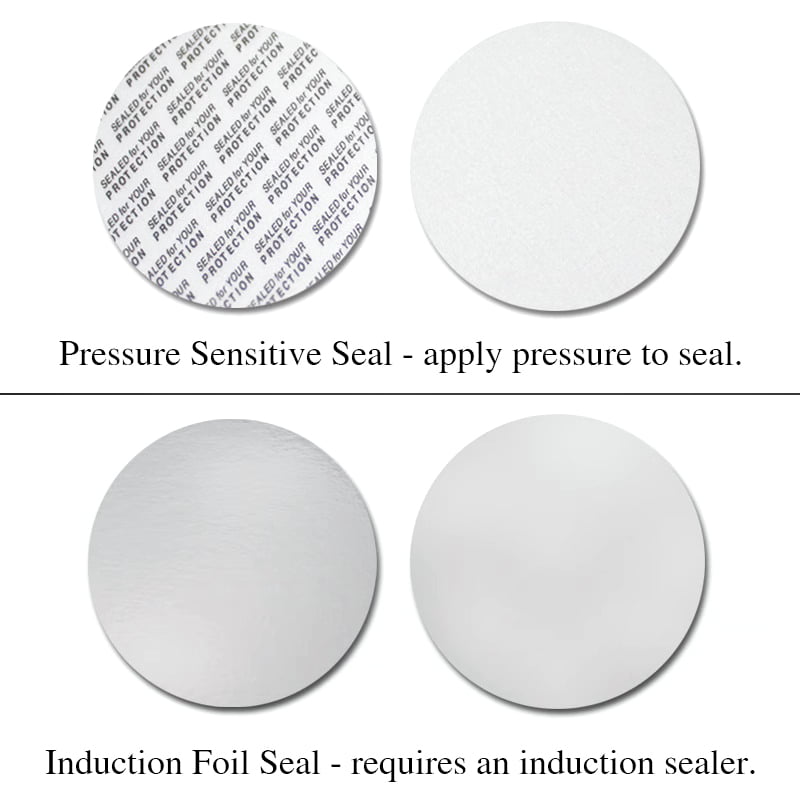
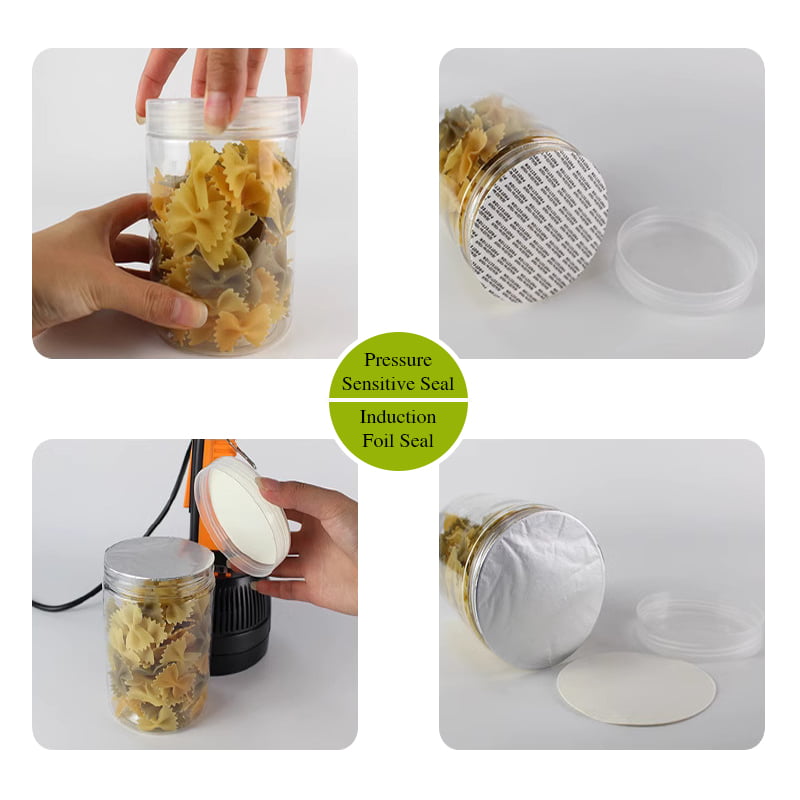
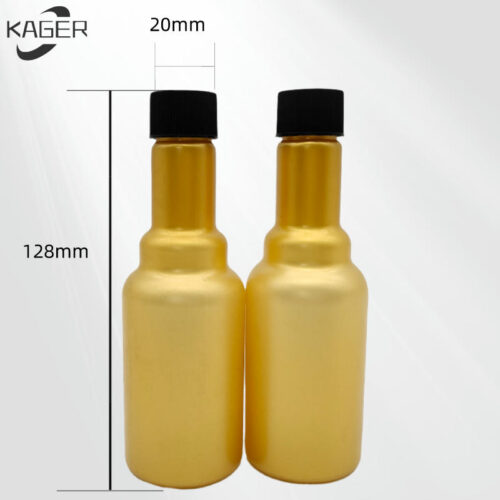
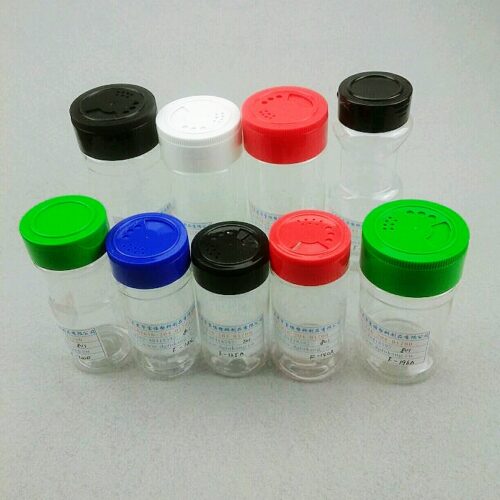

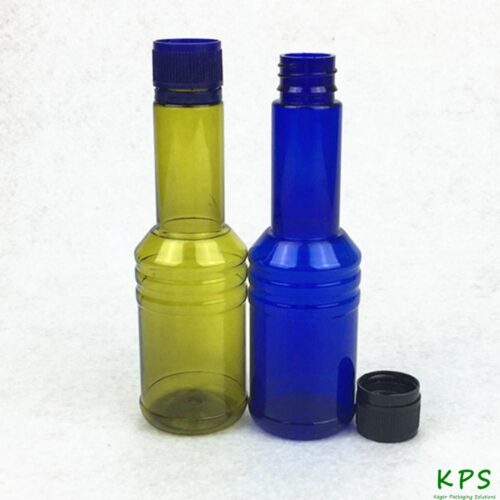
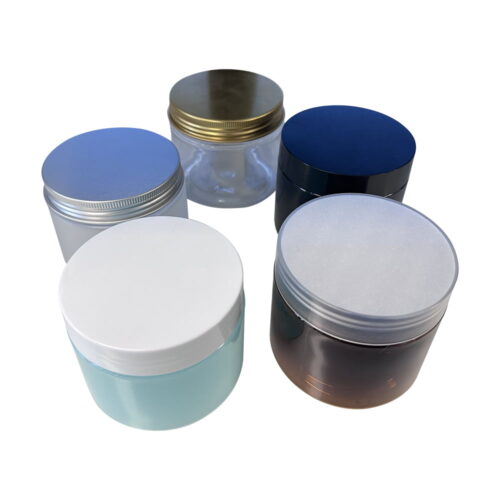


Tasmanian Soap Farm (verified buyer) –
Will do the job of sealing freshness in. Cheers!
Abbey (verified buyer) –
Such a great product! Super happy and will continue to buy!